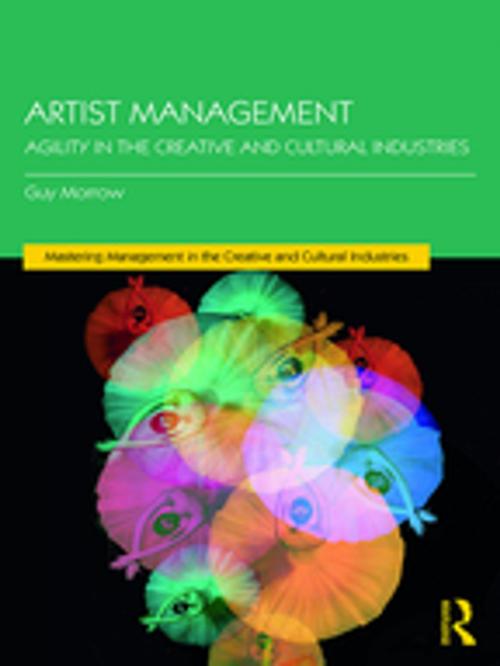Artist Management
Agility in the Creative and Cultural Industries
Nonfiction, Entertainment, Performing Arts, Business Aspects, Business & Finance, Industries & Professions, Nonprofit Organizations & Charities, Art & Architecture, General Art| Author: | Guy Morrow | ISBN: | 9781315520872 |
| Publisher: | Taylor and Francis | Publication: | April 17, 2018 |
| Imprint: | Routledge | Language: | English |
| Author: | Guy Morrow |
| ISBN: | 9781315520872 |
| Publisher: | Taylor and Francis |
| Publication: | April 17, 2018 |
| Imprint: | Routledge |
| Language: | English |
Artists are creative workers who drive growth in the creative and cultural industries. Managing artistic talent is a unique challenge, and this concise book introduces and analyses its key characteristics.
Artist Management: Agility in the Creative and Cultural Industries makes a major contribution to our understanding of the creative and cultural industries, of artistic and managerial creativities, and of social and cultural change in this sector. The book undertakes an extensive exploration of the increasingly pivotal role of artist managers in the creative and cultural industries and argues that agile management strategies are useful in this context. This book provides a comprehensive and accessible account of the artist–artist manager relationship in the twenty-first century. Drawing from research interviews conducted with artist managers and self-managed artists in five cities (New York, London, Toronto, Sydney and Melbourne), this book makes an original contribution to knowledge. Nation-specific case studies are highlighted as a means of illuminating various thematic concerns.
This unique book is a major piece of research and a valuable study aid for both undergraduate and postgraduate students of subjects including arts management, creative and cultural industries studies, arts entrepreneurship, business and management studies and media and communications.
Artists are creative workers who drive growth in the creative and cultural industries. Managing artistic talent is a unique challenge, and this concise book introduces and analyses its key characteristics.
Artist Management: Agility in the Creative and Cultural Industries makes a major contribution to our understanding of the creative and cultural industries, of artistic and managerial creativities, and of social and cultural change in this sector. The book undertakes an extensive exploration of the increasingly pivotal role of artist managers in the creative and cultural industries and argues that agile management strategies are useful in this context. This book provides a comprehensive and accessible account of the artist–artist manager relationship in the twenty-first century. Drawing from research interviews conducted with artist managers and self-managed artists in five cities (New York, London, Toronto, Sydney and Melbourne), this book makes an original contribution to knowledge. Nation-specific case studies are highlighted as a means of illuminating various thematic concerns.
This unique book is a major piece of research and a valuable study aid for both undergraduate and postgraduate students of subjects including arts management, creative and cultural industries studies, arts entrepreneurship, business and management studies and media and communications.















